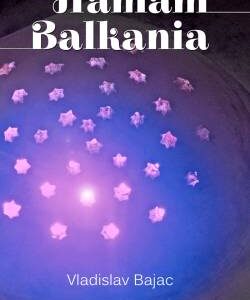POST TO UK & IRELAND ONLY
Author: Filip David
Translated by Christina Pribićević-Zorić
Wiinner of the prestigious NIN Award (Serbia)
Albert Weiss has been deprived of his original identity since early childhood, by the heroic act of his parents. His father, striving to save him from imminent death in a Nazi concentration camp, manages to make a hole in the floor of a train taking Jewish families to their deaths. He then pushes the young Albert and his brother on the tracks, hoping that someone would find and take pity on the two boys in the white winter night
In an attempt to comprehend the existence of evil, Filip David shows us that it is necessary to walk in two worlds: the material one in which evil occurs, and the other in which we try to come to terms with it; the world of dreams, apparitions, premonitions and visions, the world of fantasy. With its intricate plot, its haunting reflections on identity, its pertinence and meaning in a world sometimes overrun with evil, The House of Remembering and Forgetting leads us to the crucial dilemma: whether to remember or to forget, and thus offers us a paradoxical and painful choice.
With a foreword by Dejan Djokić
Professor of History at Goldsmiths, University of London
This book is published in cooperation with Peter Owen, as part of the World Series.
‘This is a profound book, immense in its wisdom and courage, and it demands to be read several times. At its huge heart remains the image of the little boy — distantly related to none other than the famous escape artist Houdini — thrust out into the snow. . . So many questions, so few answers, and always the haunting sound of a train. Devotedly and painstakingly, Filip David probes our communal bewilderment, as well as the fate of Serbian Jews in particular.’
The Los Angeles Review of Books
‘Filip David’s question, then, remains open: how are we to understand evil, if at all? While he ventures no answer, by maintaining an unflinching gaze towards this fundamanetal, existential conundrum, he has written a masterly book. It meshes a rigorous intelligence. . . with an eerie exploration of “the corridors and labyrinths of many criss-crossing worlds.”‘
‘.A masterly book written with rigorous intelligence.’
Richard Berengarten, The Jewish Chronicle
‘In the confessions of numerous Jewish children who escaped the Holocaust and hid their identity, the conflict between memory and forgetfulness is revealed as an illusion. While warning us of the consequences of the choice between what to remember and what to forget, David suggests a new dialogue between memory and forgetfulness, a need for a new language for understanding evil.’
Svetlana Tomić, World Literature Today






